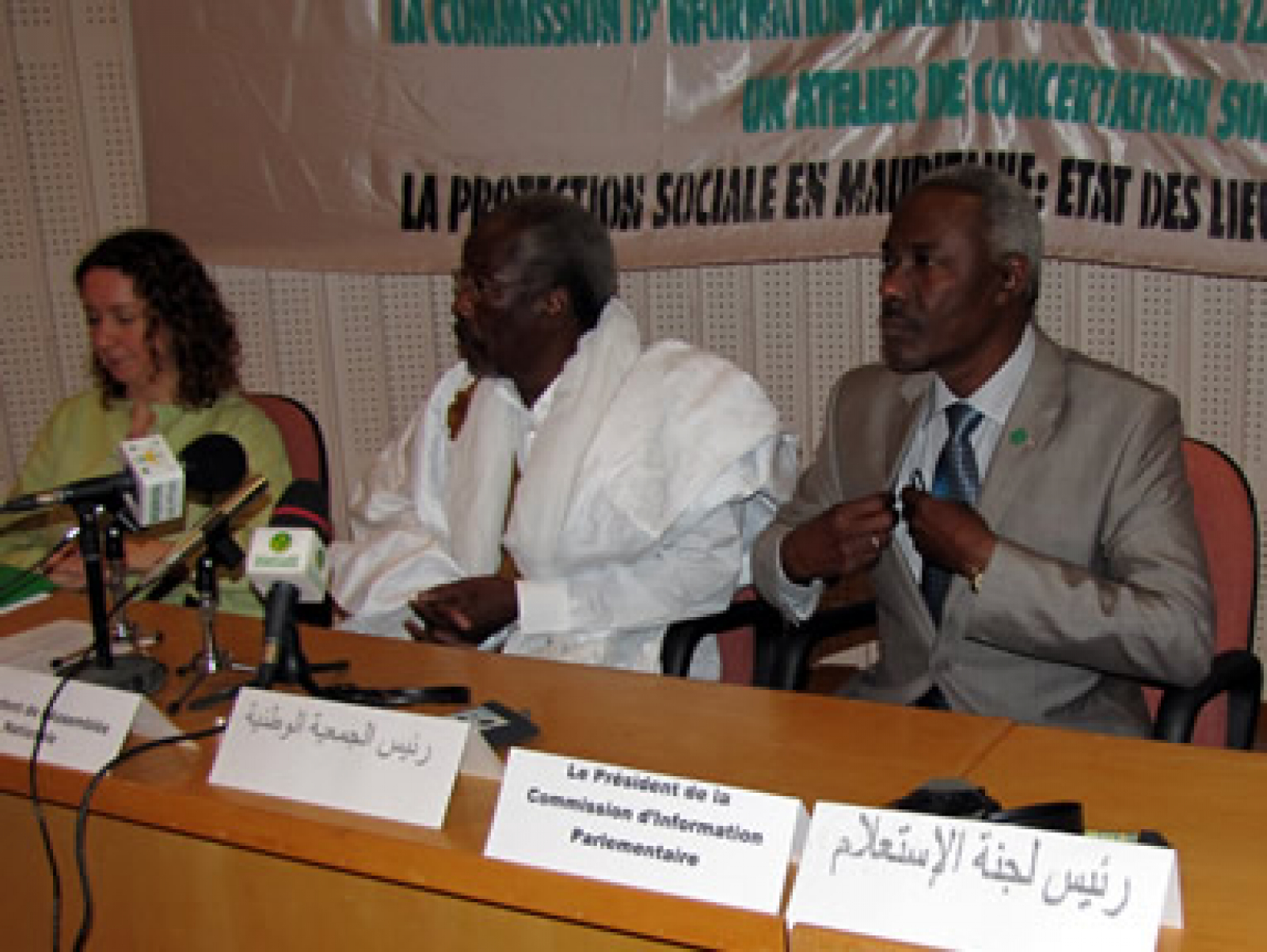
SHARE
A hotly-debated topic in Mauritania these days is social security, described as "the foundation for social justice in a modern state" by Mohamed Abdallahi Ould Guelaye, president of the Mauritanian Parliamentary Commission on Public Welfare and Health and author of a recent report on social security reform. "It is an expression of national solidarity: the wealthy pay for the poor, the healthy help the sick and are helped in turn when they fall ill," he said.
Created in the 1950s to care for the old and infirm in this North African country, the system has expanded to include national health insurance for the public and private sectors, public and private pension systems, unemployment benefits, maternity benefits and more. The current system is expensive, and to keep it operating the government must decide whether to raise taxes, cut services or restructure the program.
To that end, the parliament created the commission to explore options, and it began drafting a bill to reform the program. Working with NDI, the parliamentary commission sought input from citizens to make sure their priorities and concerns were reflected in the new legislation. In early June, representatives of national trade unions and civil society organizations met with senior government officials from parliament and the executive branch, including the directors of the National Fund for Social Security and the National Fund for Health Insurance. They discussed the options facing the country, voiced concerns about potential benefit cuts, and offered ideas and recommendations for improving the system.
For example, one union representative urged the committee to modify the existing law to allow widows to keep their health insurance after their spouse dies, and to improve insurance coverage for the very poor. Another leader at the meeting suggested standardizing the retirement age and increasing contributions made by employees to the national system.
This type of dialogue is relatively new to Mauritania, where citizen input has historically been limited. But lately, the parliament has made an effort to include citizens in the political process, first with a public hearing on improving the economy and most recently with this meeting to address social security.
The meetings lasted two days and ended with the commission adopting several of the recommendations put forward by civil society. Among those that will be included in the final draft of the reform bill are creation of an office to aid coordination among the institutions offering social security services, a national records center that will help the government track social security funds, and a monitoring committee made up of parliamentarians and civil society representatives who participated in the dialogue to evaluate the new law and suggest improvements.
At the end of the meetings with civil society leaders, Guelaye reaffirmed his commitment to continue to seek citizen input. While the hearing was the "first of its kind," Guelaya told those gathered it would not be the last.
Related:
- In Mauritania, parliamentarians, business leaders work together to improve economy»
- In Liberia, U.S. congressional delegation reaffirms commitment to legislative research»
- Mexican civic groups bring public security concerns to politicians»
Pictured above: Guelaye (r) chairs the meeting.
Published July 7, 2011


